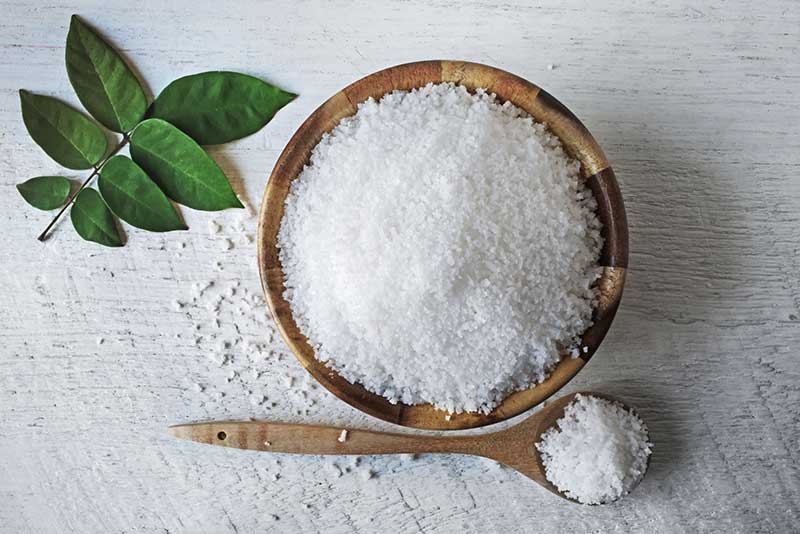High blood pressure, or hypertension, is like a silent killer that can very quietly lead you to many life-threatening conditions such as stroke and heart attack. When it comes to high blood pressure symptoms, many people get confused. They are symptomless and go unnoticed for many years until they are checked, which leads to severe damage to the arteries. Generally, people with constantly elevated blood pressure or who are dealing with chronic ailments such as diabetes. In this article, you will learn how to manage hypertension naturally with the help of diet and lifestyle modifications.
Lifestyle and dietary modification to manage hypertension:
1. Limit your salt intake

Limiting your salt intake is important as salt contains sodium which increases blood pressure and causes the body to retain excess water. This can put a burden on your heart and put more pressure on your blood vessels. Even a small reduction in the quantity of salt can show a drastic change in your heart health, so make sure to not consume more than 1500 mg a day. Make sure to cut on processed food as these are high in sodium and make sure to choose low sodium alternatives when it comes to packaged food you buy.
2. Lose weight

Managing your weight is one of the best things you can do to manage your hypertension. If you are overweight then there might be a chance that your blood pressure is high. Also, if you are overweight then it can disrupt your breathing while you are sleeping, which is called sleep apnea which can further increase your blood pressure. Too much weight around the midsection can severely affect your blood pressure. Try to aim for sustainable weight loss with the help of diet and exercise.
3. Include foods rich in potassium and magnesium

When it comes to hypertension control and prevention what you are eating plays a major role. Food rich in fiber and potassium is great when it comes to managing blood pressure as it slows down the effects of sodium in your body. Include fruits and vegetables in your diet as these are rich sources of potassium and fibers. When it comes to diet to lower blood pressure quickly include the following foods such as bananas, pomegranates, beets, Brussels sprouts, and coconut water.
4. Include DASH diet

The DASH diet is a dietary approach to reducing hypertension. It is a meal plan that is rich in fruits, vegetables, nuts, legumes, whole foods, and low-fat dairy, making it one of the best diets to prevent heart disease. These foods are rich in potassium, magnesium, protein, fibre, and calcium; hence, they lower blood pressure quickly. It aids in lowering your cholesterol, which is beneficial for our cardiac health.
5. Exercise

Try to be more physically active and aim to exercise at least twenty to thirty minutes per day. If you already have hypertension it will help lower your blood pressure to a normal level. If you have elevated blood pressure exercise will prevent it from developing into hypertension. You can try to go for brisk walking, cycling, and swimming. However, before going for a high-intensity workout consult with your doctor.
6. Limit your alcohol intake

If you drink too much alcohol it can do severe damage to your health as it can raise your blood pressure to an unhealthy level. Also, if you are on medication for hypertension it can severely impair its working. Try to limit your alcohol intake to one or two glasses.
7. Put down that cigarette

When it comes to managing blood pressure you need to avoid smoking. Hypertension causes damage to your blood vessels walls and when you smoke you put more damage to the lining of blood vessels. This makes it very hard for them to relax and recover. Also, if you are smoking it lowers the effectiveness of the blood pressure medication you are taking so it is best to avoid or quit it.
8. Avoid stress

Stress is a major contributor to raising your blood pressure in general specifically if you try to curb it by unhealthy eating, smoking, and drinking alcohol. Find the trigger of your stress such as work, family issues, an illness, or your finances, and then try to avoid it or reduce it. You can also try to cope with stress by practicing deep breathing, yoga, or meditation which are highly effective in reducing it. Try to find the activities that make you relax whether it is listening to music or talking to your friends.
9. Limit your caffeine intake

If you are someone who drinks caffeinated beverages on a daily basis then you might not see a big change in your blood pressure. Although if you are someone who rarely drinks it then it can cause a spike in your blood pressure when you have it. You can ask your doctor about the effect of caffeine on your blood pressure.
10. Check your blood pressure

keeping a tab on your blood pressure is important to make sure that the lifestyle changes you are making are working. Since there are no symptoms of high blood pressure therefore it is best to measure your blood pressure. This will help in monitoring your condition or it will also help your doctor to understand your condition in a better way.
It is necessary to keep your doctor in a loop to make sure that you don’t have any underlying medical conditions or if you have then keep them under control. If you are diagnosed with hypertension you can follow the above lifestyle changes. This will help in controlling your hypertension and managing your overall wellbeing.

Priyanka Khurana Goyal is an ardent fitness expert, fashion enthusiast, believer of chemical free lifestyle. Believing in profound benefits of chemical free lifestyle, she has embraced Read more

